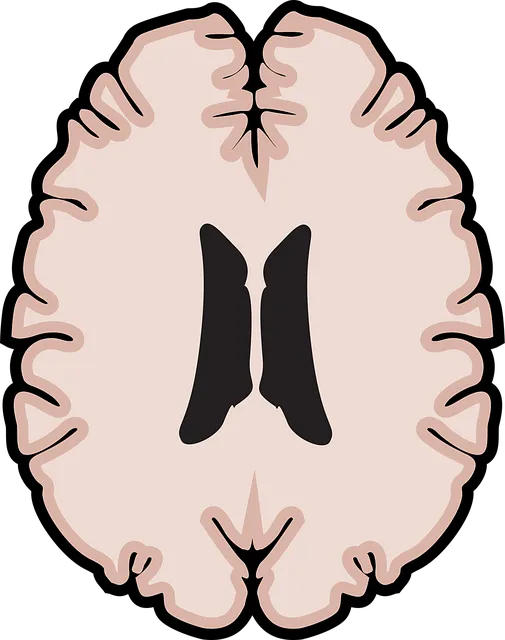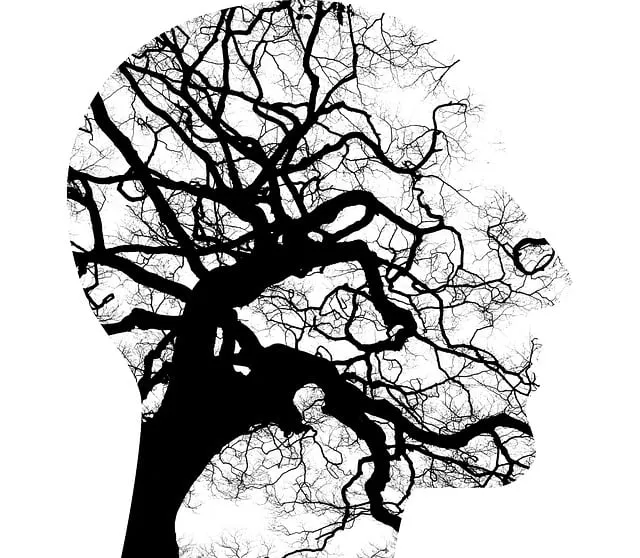In today's digital era, Lone Tree Kaiser Permanente aligns with a growing trend in mental wellness by developing innovative apps that offer accessible, personalized support for stress management and mental health. These apps incorporate evidence-based techniques such as mindfulness, cognitive behavioral therapy, and coping skills tools, empowering users to take control of their emotional well-being. Key features include intuitive interfaces, mood tracking, guided meditations, community forums, and real-time professional support, all designed to reduce stigma and foster inclusive practices in mental health management. Privacy, security, and ethical considerations are paramount, ensuring user trust and protection of sensitive data.
In today’s fast-paced world, mental wellness is a paramount concern. The rise of digital solutions, such as mental wellness apps, has become essential in addressing this growing need. This article explores the development of these innovative tools, focusing on key features, user interface design, and critical privacy, security, and ethical aspects. By examining real-world examples like Lone Tree Kaiser Permanente’s mental health initiatives, we uncover how these apps can empower individuals to take charge of their well-being.
- Understanding the Need for Mental Wellness Apps
- Key Features and Functionality in App Development
- Designing User Interfaces for Enhanced Engagement
- Privacy, Security, and Ethical Considerations in Mental Health App Creation
Understanding the Need for Mental Wellness Apps

In today’s fast-paced world, mental wellness has emerged as a paramount concern, with an increasing awareness of the impact of mental illness on individuals and communities alike. This shift in perspective has paved the way for innovative solutions, such as mental wellness apps, that cater to the diverse needs of people seeking support. The demand for these applications is driven by the recognition that access to mental health resources should be accessible, convenient, and personalized, especially for those who might face barriers in traditional therapy settings.
Lone Tree Kaiser Permanente’s efforts in mental health align with this growing trend, focusing on initiatives like Stress Management Workshops Organization, which leverages technology to reduce the stigma associated with mental illness. By offering digital tools and resources, these apps aim to enhance self-care practices, promote resilience, and provide timely interventions for various mental health concerns. Incorporating evidence-based techniques for stress management, mindfulness, and cognitive behavioral therapy, they empower users to take control of their mental wellness journey, ensuring a more inclusive and supportive environment for everyone, regardless of their background or previous experiences with mental health services.
Key Features and Functionality in App Development

In the realm of mental wellness app development, several key features and functionalities stand out as essential components for fostering effective support. One such notable aspect is the integration of coping skills development tools, designed to equip users with practical strategies to navigate stress, anxiety, and other common mental health challenges. These apps often include guided meditations, mindfulness exercises, and cognitive-behavioral techniques that help users cultivate resilience and emotional intelligence—a crucial aspect for maintaining overall well-being.
Additionally, public awareness campaigns development plays a significant role in app design. By incorporating educational content, interactive quizzes, and shareable resources, mental wellness apps can contribute to breaking down stigma and promoting open conversations around mental health. Features like personalized progress tracking, community forums, and real-time support from mental health professionals enhance the user experience, ensuring that individuals have access to tailored guidance and a sense of belonging in their journey towards improved mental health, much like the services provided by Lone Tree Kaiser Permanente mental health experts.
Designing User Interfaces for Enhanced Engagement

In the realm of mental wellness app development, crafting intuitive and visually appealing user interfaces is paramount to fostering user engagement. Lone Tree Kaiser Permanente mental health apps should prioritize simplicity and accessibility, ensuring users can navigate through various features effortlessly. Incorporating elements like clear menus, vibrant color schemes, and responsive design adapted for different screen sizes creates an immersive experience. The interface should serve as a digital companion, encouraging users to return regularly by seamlessly integrating tools such as mood tracking, meditation guides, and personalized recommendations tailored to individual needs.
Effective communication strategies are key to enhancing user engagement. Incorporating interactive elements like chat boxes, feedback forms, or virtual communities enables open dialogue and facilitates connections among users. Moreover, integrating confidence-boosting exercises and trauma support services within the app’s design can empower users by providing readily accessible resources for emotional well-being. By combining engaging interfaces with robust communication tools, these mental wellness apps aim to revolutionize how individuals prioritize and manage their mental health in today’s digital landscape.
Privacy, Security, and Ethical Considerations in Mental Health App Creation

In the realm of mental wellness app development, privacy, security, and ethical considerations are paramount, especially when addressing sensitive information related to Lone Tree Kaiser Permanente mental health services. As users share intimate details about their emotional well-being, developers must ensure robust data protection measures are in place. Encryption techniques, secure storage systems, and transparent data handling practices are essential components of building user trust.
Beyond technical safeguards, ethical guidelines should shape the app’s design and functionality. Developers should prioritize informed consent, ensuring users understand how their information is collected, stored, and shared. Promoting mental health awareness through educational content and encouraging healthy coping mechanisms can foster a supportive digital environment. Additionally, considering the potential impact on diverse populations and advocating for inclusive practices in Mental Health Policy Analysis and Advocacy ensures that these apps cater to a broad spectrum of needs.
The development of mental wellness apps, such as those offered by Lone Tree Kaiser Permanente, is a growing trend driven by the increasing demand for accessible and personalized mental health support. By integrating key features like mindfulness exercises, therapy sessions, and secure communication tools, these applications provide users with a convenient and discreet way to improve their mental well-being. With user interfaces designed for engagement and privacy, security, and ethical considerations at the forefront, mental wellness apps have the potential to revolutionize access to care, just as Lone Tree Kaiser Permanente has pioneered in the field of mental health services.






